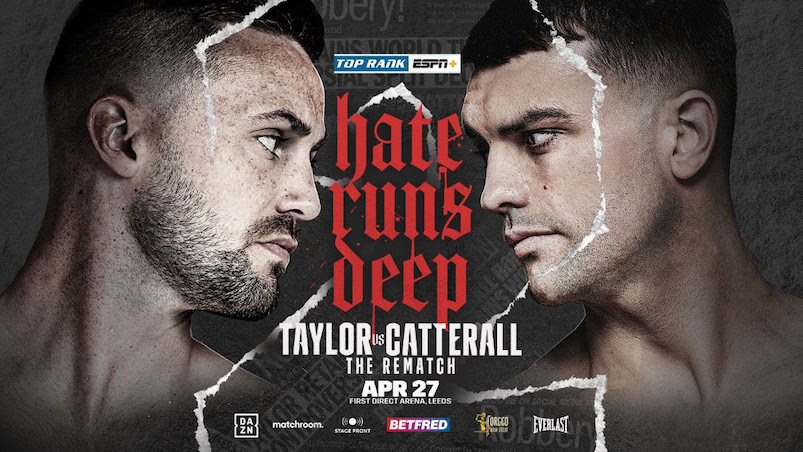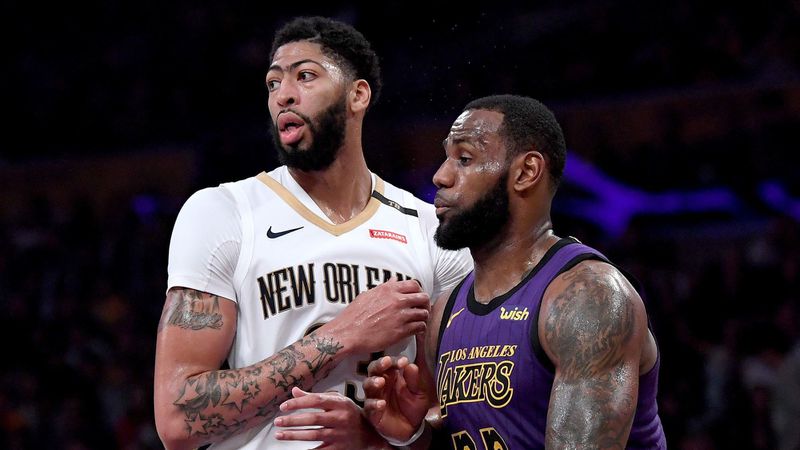The Lakers became favorites to win the NBA championship next season, at least in the eyes of Vegas, when they agreed to a blockbuster trade to acquire Anthony Davis.
Teams don’t hang banners for having the lowest betting odds in June, but this is a long overdue transaction for a franchise that has the worst winning percentage in the NBA over the past six years.
With one big swing, the Lakers went from a team trying to win their first playoff game since 2012 to being arguably the best team in the league.
What’s a fair price tag on that kind of jump?
It’s hard to grade a trade immediately, especially one that potentially includes a draft pick in 2025, but this was a deal the Lakers absolutely had to make. There’s a realistic path to the NBA Finals now that didn’t exist last month. Kevin Durant and Klay Thompson, who could have left the Golden State Warriors as free agents, are now sidelined for much or all of next season and the Houston Rockets are basically telling the Lakers “hold my beer” when it comes to having the most turmoil and dysfunction in the league.
The Lakers couldn’t waste another season of LeBron James or hope their young core developed or expect a free agent to sign with them when they had whiffed on every big name outside of James for nearly a decade. They had to push all their chips in and go for it.
If you’re in the “Lakers gave up to much” camp, what exactly did you think a trade for Davis, one of the top five players in the NBA, would look like if it didn’t include Kyle Kuzma or taking on a bad contract that would have eliminated the possibility of adding another star player?
Before the trade deadline last season, the Lakers reportedly had agreed to send Lonzo Ball, Kuzma, Brandon Ingram, Josh Hart, Ivica Zubac, Kentavious Caldwell-Pope and two first round picks to New Orleans for Davis. On top of that, they offered to take on the contract of Solomon Hill, who is due to make $12.7 million next season after averaging 4.3 points and 3.0 rebounds for the Pelicans.
That deal went nowhere and led to Pelicans general manager Dell Demps being fired, Lakers president of basketball operations Magic Johnson abruptly resigning and both teams suffering drama-filled ends to their seasons.
Fast forward a few months and David Griffin, the former Cleveland Cavaliers general manager, is now making basketball decisions in New Orleans, and Rob Pelinka, the Lakers general manager, is calling the shots without Johnson. The offer that was on the table before, sans Zubac and Caldwell-Pope, seemed like a logical place to start for both parties.
If you’re the Lakers, you were able to get Davis, keep Kuzma and avoid taking on a bad contract that would have hampered your ability to get a player you want this summer simply by throwing in an extra first round draft pick. If the Lakers are able to use available cap room to sign a player such as Kemba Walker, Jimmy Butler or Kyrie Irving, in what world is keeping Kuzma and signing a player like that not worth a future first-round pick?
Yes, first round picks in recent years have been lottery picks, but the Lakers don’t expect to be in the lottery again for a while after acquiring Davis, who just turned 26. More likely, the Lakers will be sending this year’s No. 4 pick, which was always going to be used to attract a veteran who could could immediately contribute, along with first-round picks presumably in the late 20s in 2022 and 2025. The pick swap in 2023 will be meaningless if the Lakers have a better record than the Pelicans.
In Ball, Ingram and Hart, the Lakers traded three talented young players who have missed a combined 152 games over the past three seasons. Ingram is recovering from surgery and a blood clot in his right arm; and Ball is recovering from an ankle injury that sidelined him for the latter part of last season. None of them so much as made the NBA All-Rookie first team. Kuzma and Jordan Clarkson are the only Lakers to make the NBA All-Rookie first team since 1995, and Kuzma is the only Laker during that time to win the MVP of the Rising Stars Challenge. He was the young player the Lakers wanted keep most, and they did.
It wasn’t as if the Lakers broke up a young core that showed the potential to be a championship-contending team. This wasn’t the 1994-95 Lakers with Nick Van Exel, Eddie Jones, Anthony Peeler, Cedric Ceballos, Vlade Divac and George Lynch, all 26 or younger, who were two wins away from getting to the Western Conference finals. As fun as that team was to watch, it was broken up and none of those players were on the Lakers when Shaquille O’Neal and Kobe Bryant led the team to three straight titles from 2000-2002.
In Davis, the Lakers made a deal for a transcendent player. In the history of the NBA and ABA, the top three players in Player Efficiency Rating (PER) are Michael Jordan (27.91), James (27.59) and Davis (27.42). Over the past six seasons, James and Davis have both finished in the top eight in PER.
Every Lakers championship team from Jerry West and Wilt Chamberlain in 1972 to Magic Johnson and Kareem Abdul-Jabbar in the 1980s to Bryant and O’Neal in the early 2000s to Bryant and Pau Gasol later that decade have been led by a hall of fame tandem. James and Davis might be the best statistical pairing in league history, and could be the next duo to lead the Lakers to a championship.



